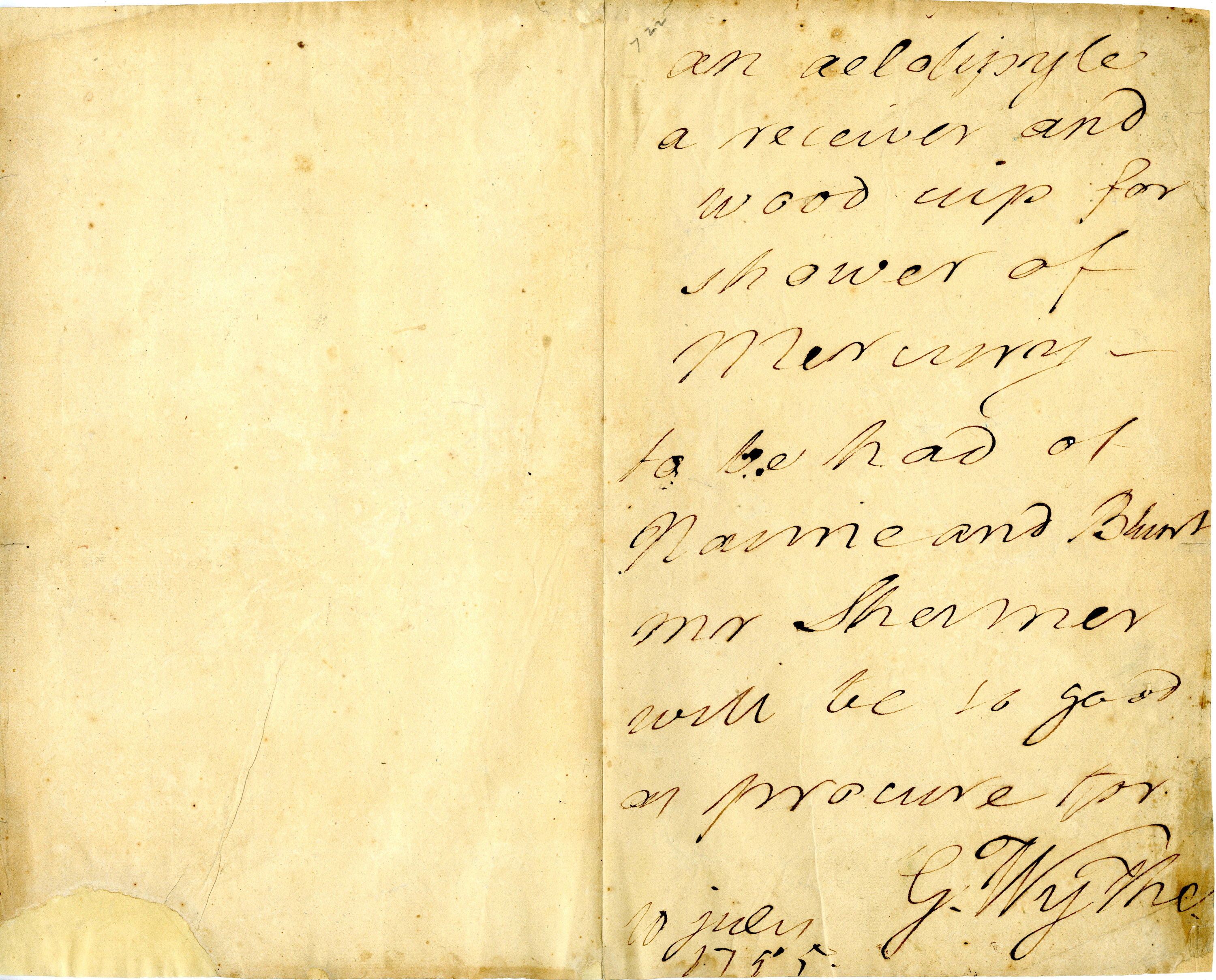Wythe to Shermer, 10 July 1755

This letter is a portion of one of Wythe's orders for scientific equipment, from the London scientific instrument makers Edward Nairne and Thomas Blunt. Sometime after 1783, Wythe also purchased a "Patent Electrical Machine" from Nairne. The Mr. Shermer whom Wythe references may be one of the Virginia Shermers from the case Shermer v. Richardson.
Wythe's order includes an aeolipile, which is a simple steam turbine. The device would be filled with water, then spin as steam was emitted. Wythe also orders a equipment for performing the scientific demonstration known as the "Shower of Mercury," in which mercury is poured into an open cup sealed to a plugged container and a vacuum created; the difference in pressure forces the mercury through a cork or piece of wood into the lower container, and the pressure causes the mercury to shower out in a blue-white color. This experiment appears in many contemporary natural science texts:
Again, fitting a piece of wood with cement into one end of a brass ferril, and placing it with leathers on the top of the same receiver, fill the upper and open part of the ferril with mercury, then exhaust the air from within, and the air pressing on the mercury without will force it thro the pores of the wood in such fine streams as will represent a beautiful Shower of Mercury in the receiver.[1]
According to Hemphill in his dissertation, "George Wythe the Colonial Briton" (1937), this was the "earliest available writing from Wythe's pen now known to be extant."[2] Wythe's complaint in Russell v. Dowde, however, is from 1746.
Document text, 10 July 1755
Page 1
an aelolipyle
a receiver and wood cup for shower of Mercury —
to be had of Nairne and Blunt
Mr Shermer will be so good to procure for
- G. Wythe
10 july
- 1755
See also
References
- ↑ Benjamin Martin, A Plain and Familiar Introduction to the Newtonian Philosophy (London: W. Owen, 1754), 76.
- ↑ William Edwin Hemphill, "George Wythe the Colonial Briton: A Biographical Study of the Pre-Revolutionary Era in Virginia," PhD diss., University of Virginia, 1937, 82.